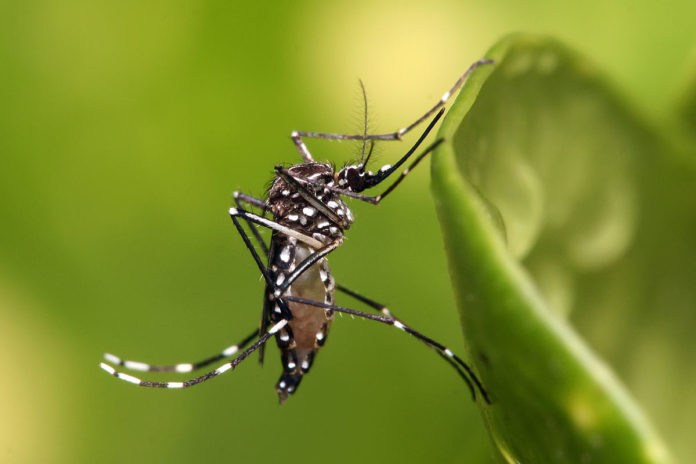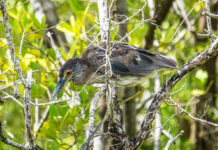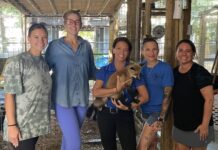
The Florida Keys Mosquito Control District and Oxitec Ltd. on April 23 released an advisory outlining some of the plans for its Florida Keys pilot project:
Project managers anticipate that during the last week of April and first week of May, release boxes, non-release boxes and netted quality control boxes will be placed in six locations: two on Cudjoe Key, one on Ramrod Key and three on Vaca Key.
“Throughout all release locations fewer than 12,000 mosquitoes are expected to emerge each week for approximately 12 weeks. Untreated comparison sites will be monitored with mosquito traps on Key Colony Beach, Little Torch Key and Summerland Key.
This marks the start of the U.S. EPA-approved project to evaluate this solution to control the invasive Aedes aegypti mosquito species.
Oxitec’s non-biting male mosquitoes will emerge from the boxes to mate with the local, biting female mosquitoes. The female offspring of these encounters cannot survive, and the population of Aedes aegypti is subsequently controlled.
The Aedes aegypti mosquito makes up about 4% of the mosquito population in the Keys, but is responsible for virtually all mosquito-borne diseases transmitted to humans. This species of mosquito transmits dengue, Zika, yellow fever and other human diseases, and can transmit heartworm and other potentially deadly diseases to pets and animals.
“An important part of FKMCD’s mission is to protect residents in the Florida Keys from the disease-transmitting mosquito, Aedes aegypti,” said Andrea Leal, executive director of the Florida Keys Mosquito Control District. “As we are seeing development of resistance to some of our current control methods, we are in need of new tools to combat this mosquito. And given the unique ecosystem we live in, those tools need to be safe, environmentally friendly and targeted. That is why we are collaborating with Oxitec on this project. With full approval from the U.S. EPA and the Florida Department of Agriculture and Consumer Services, and with support from the U.S. Centers for Disease Control and an independent advisory board, we are pleased to announce that this project will soon be underway.’
“We are immensely thankful for FKMCD’s continued partnership,” said Oxitec CEO Grey Frandsen, “and for the strong public support this project has received from Florida Keys residents. This truly is a public-private partnership driven by support for new, environmentally-sustainable solutions to combat disease-transmitting mosquitoes. While next week’s releases represent a landmark release of Oxitec mosquitoes in the U.S., we’re focused on demonstrating the value this technology can have for Florida Keys residents, communities and business owners, while protecting the Keys’ beautiful and sensitive habitat that we all value so much. With outstanding support from local residents, and with full clearance from the Federal and state regulators, it’s time to get to work.’”
Oxitec’s Aedes aegypti technology
Oxitec’s non-biting male mosquito was designed to control the invasive, disease-spreading Aedes aegypti. It has successfully provided significant suppression of the wild Aedes aegypti in other geographies and does not persist in the environment or cause harm to beneficial insects like bees and butterflies.
This technology also removes all requirements for adult mosquito-rearing and releases, and eliminates the potential for female releases. Combined with other innovations, this technology is anticipated to reduce up to 90% of costs associated with traditional insect release programs.
Similar projects in the Brazilian city of Indaiatuba found that Oxitec’s mosquito suppressed disease-carrying Aedes aegypti by up to 95% in urban, dengue-prone environments following 13 weeks of treatment, as compared to untreated control sites in the same city.
More information is at keysmosquitoproject.com.— Submitted by Oxitec Ltd.


















